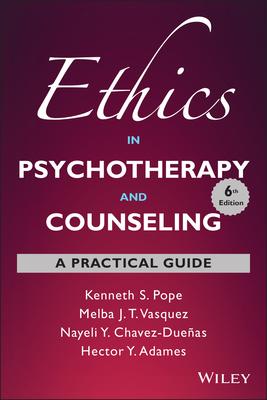Take your ethical reasoning and practice to the next level with timely discussions of new and reoccuring issues in psychology and counseling.
In the newly revised Sixth Edition of Ethics in Psychotherapy and Counseling: A Practical Guide, a distinguished team of psychologists deliver a compilation of practical and creative approaches to the responsibilities, challenges, and opportunities encountered by therapists and counselors in their work. The book covers the many changes and difficulties created by new technologies like electronic health records, videoconferencing, texting, and practicing across state and provincial boundaries.
Using a new, easy-to-navigate structure and including brand new chapters on cultural ethics, social justice and human rights ethics, and the application of strategies for self-care, the authors discuss complex issues in a straightforward and accessible way. Conversations about moral distress and moral courage and actionable steps to strengthen ethics in organizational settings round out the useful material contained within.
Once referred to as the "conscience of psychology," this must-read book also includes:
- A thorough introduction to the foundations of psychotherapeutic ethics, including ethics in real life, ethics in theories and codes, cultural context, ethical decision making, and moral courage.
- An exploration of common sources of ethical problems and pitfalls, including: pseudoscience, ethical fallacies, ethical judgement errors, language and rationalizations
- Practical discussions of special topics in ethics, including informed consent and informed refusal, using strategies for self-care, responding to ethics, licensing, and malpractice complaints, and confidentiality.
- In-depth examination of timely issues, including sexual attraction to patients, digital therapy, and responding to suicidal risk.
Perfect for individual practitioners and teachers of graduate courses, seminars, and continuing education classes, Ethics in Psychotherapy and Counseling: A Practical Guide will also earn a place in the libraries of forensic psychologists and other expert witnesses preparing to testify on the standard of care in malpractice cases.
